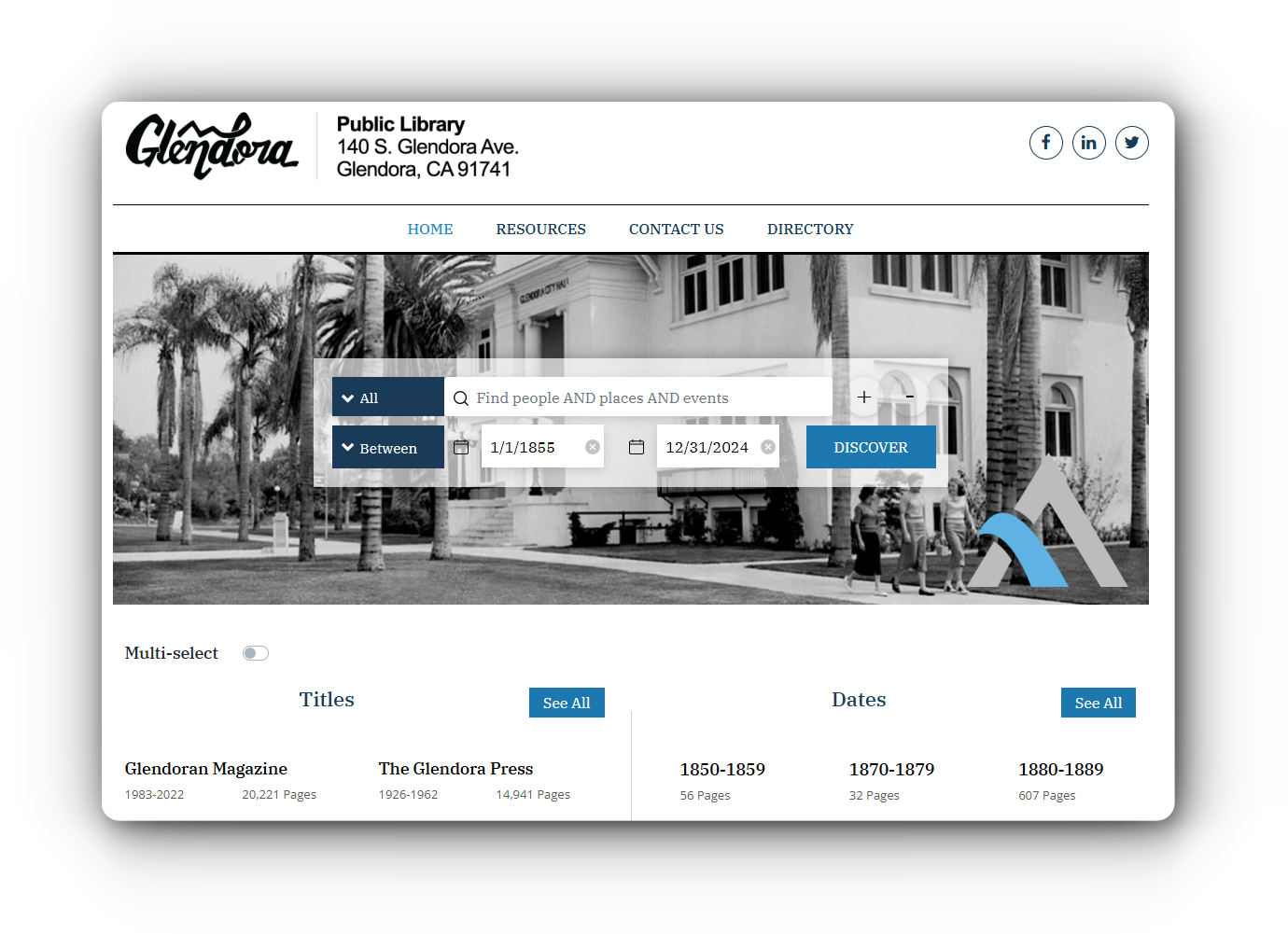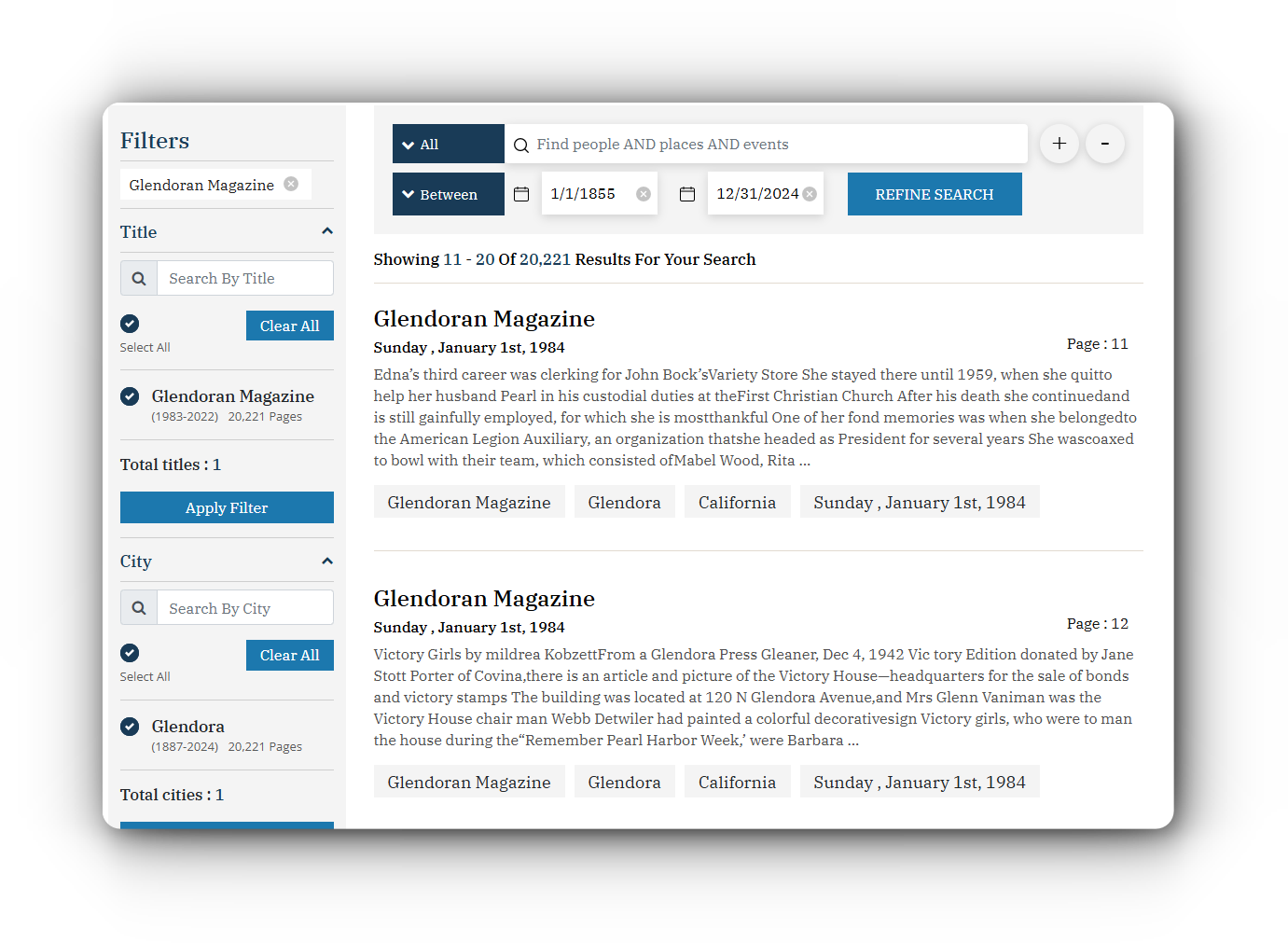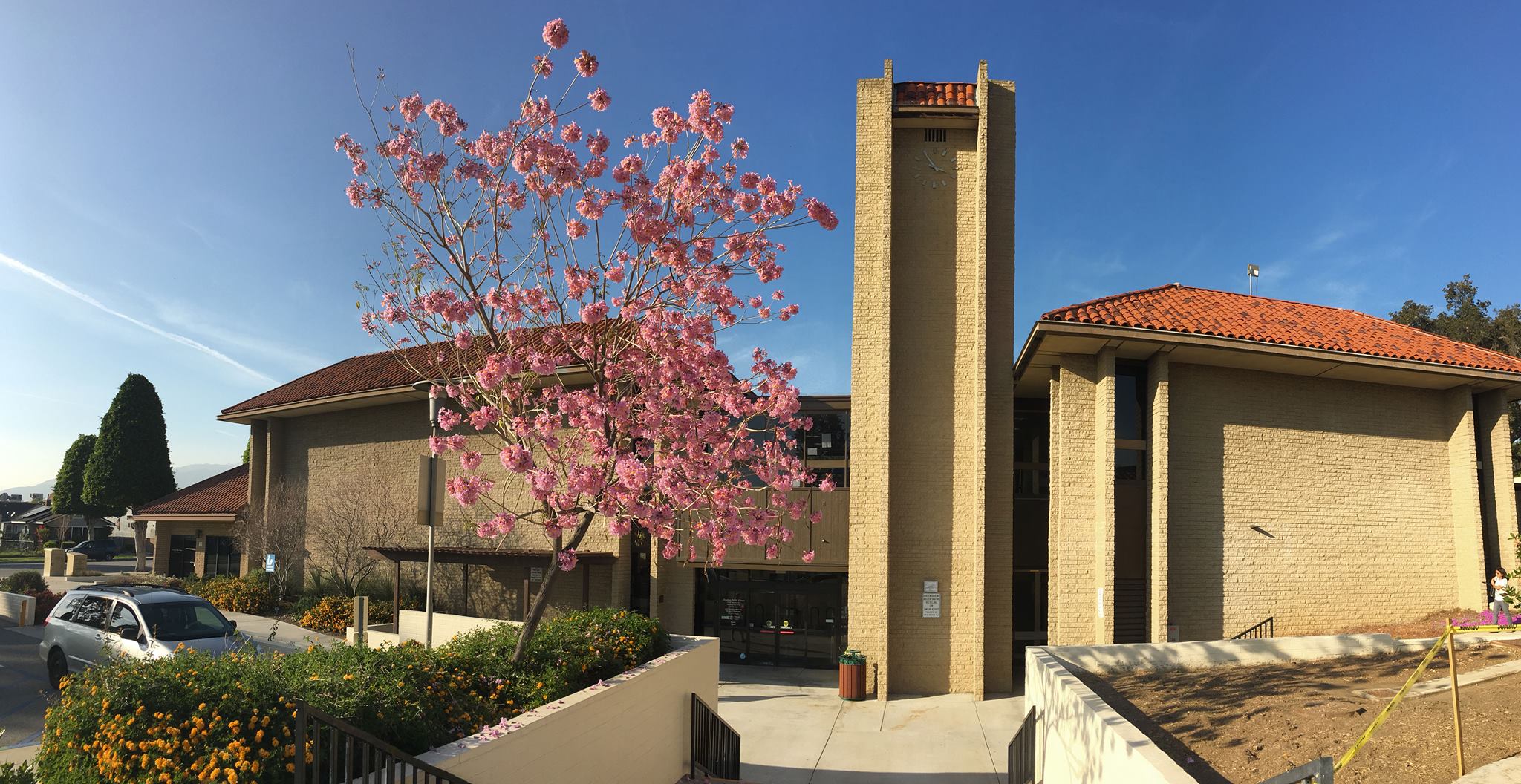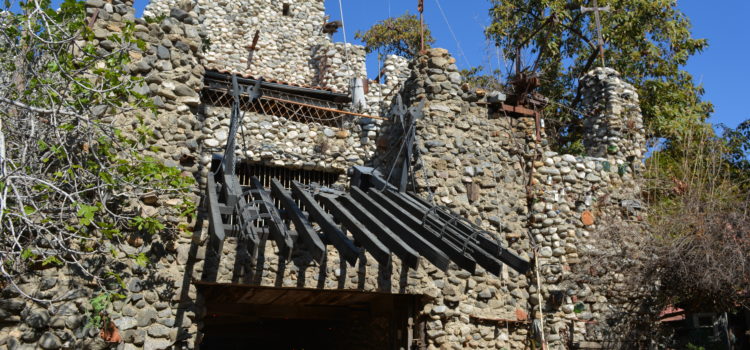Partner Spotlight: Glendora Public Library (California)
Preserving the Pride of the Foothills with Advantage Archives

Archive Overview
The Glendora Public Library Community Historical Archive, powered by Advantage Archives, offers a richly searchable repository spanning more than a century of local history. Readers can browse by title or decade—from the 1850s through the 2020s—making exploration intuitive and engaging.
Notable titles include:
- Glendoran Magazine (1983–2022; ~20,221 pages)
- The Glendora Press (1926–1962; ~14,941 pages)
- Glendora Gleaner (1901–1932; ~7,972 pages)
- Glendora Community News (1908–2018; ~5,723 pages)
- Glendora Report (2015–2024; ~409 pages)
- The Glendora Signal (1887–1889; ~329 pages)
Additional regional titles reach back to the 1850s—such as the Southern Californian (1855), Pasadena Daily Evening Star, and Covina Journal—providing valuable context for Glendora’s civic and cultural story.

Institutional Context
The archive is a collaborative initiative of the Glendora Public Library, the GPL Friends Foundation, and generous community donors—reflecting the library’s mission to enrich the community “by connecting people to the world of ideas, information, and imagination.” Consistent hours, responsive services, and modern digital access make the library a cultural anchor for Glendora.

Town & Community Context
Nestled at the foot of the San Gabriel Mountains, Glendora, California—the “Pride of the Foothills”—was founded in 1887 and incorporated in 1911. The name is believed to blend “glen” with “Leadora,” honoring the founder’s wife. Early growth was driven by a thriving citrus industry and the arrival of the railroad.
- Glendora Historical Society (founded 1947) safeguards key sites, including the original city hall (now the Glendora Museum) and Rubel Castle, a one-of-a-kind folk-art landmark built from repurposed materials over decades.

Interesting & Unique Facts
- The archive spans one of the region’s longest runs of local media—reaching back to the 1850s.
- Glendora’s preservation ecosystem—library, Friends Foundation, donors, and Advantage Archives—demonstrates how public-private collaboration sustains long-term access.
- Rubel Castle’s imaginative construction (including sculptures, found materials, and unique features like a railcar) reflects the community’s creative heritage.
Explore More
Discover Glendora’s archive and hundreds of additional collections via the Community History Archives directory at CommunityHistoryArchives.com. Browse by institution, location, or collection—free and open to the public.
Conclusion
At Advantage Archives, we proudly partner with 1,100+ institutions to provide free digital access to local history—empowering communities to rediscover, preserve, and share their unique stories. If your community is ready to bring its history online, we’d love to help make that connection happen.
More Partners Under The Spotlight



